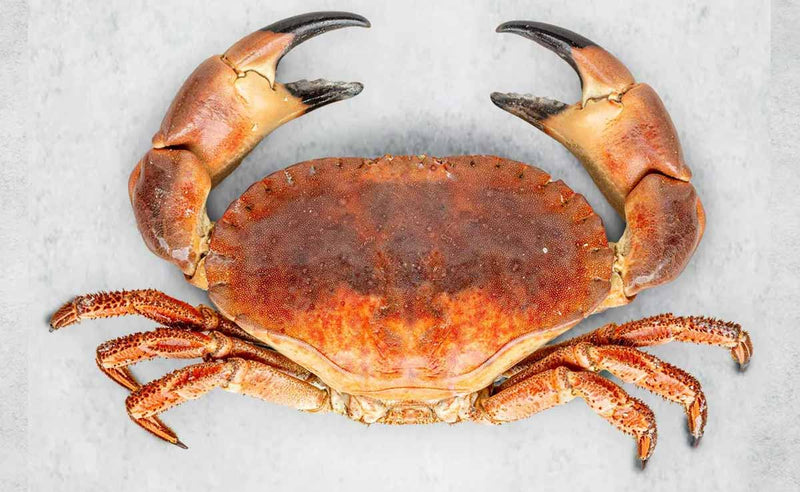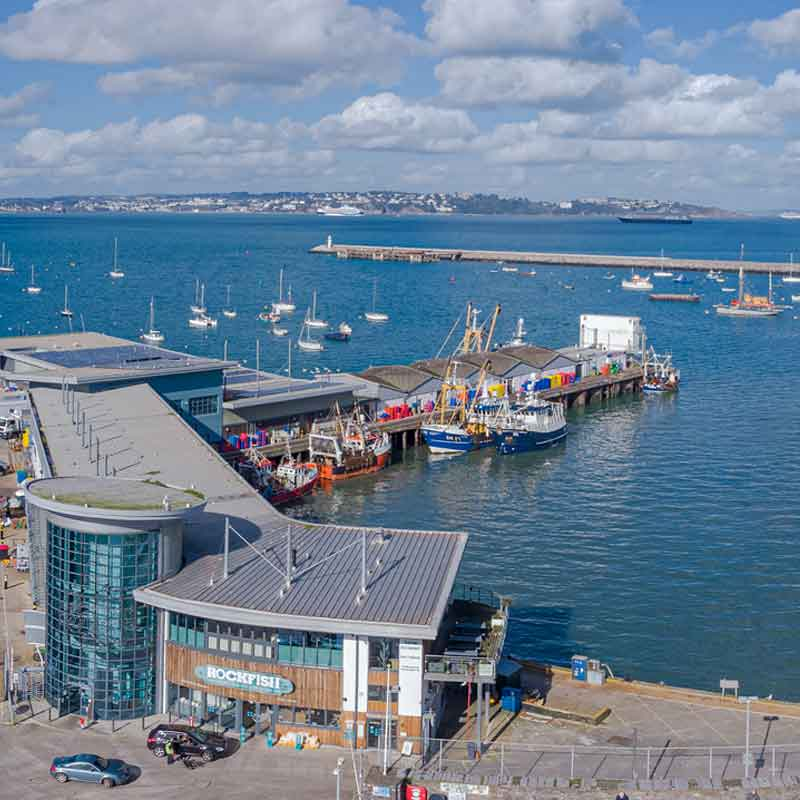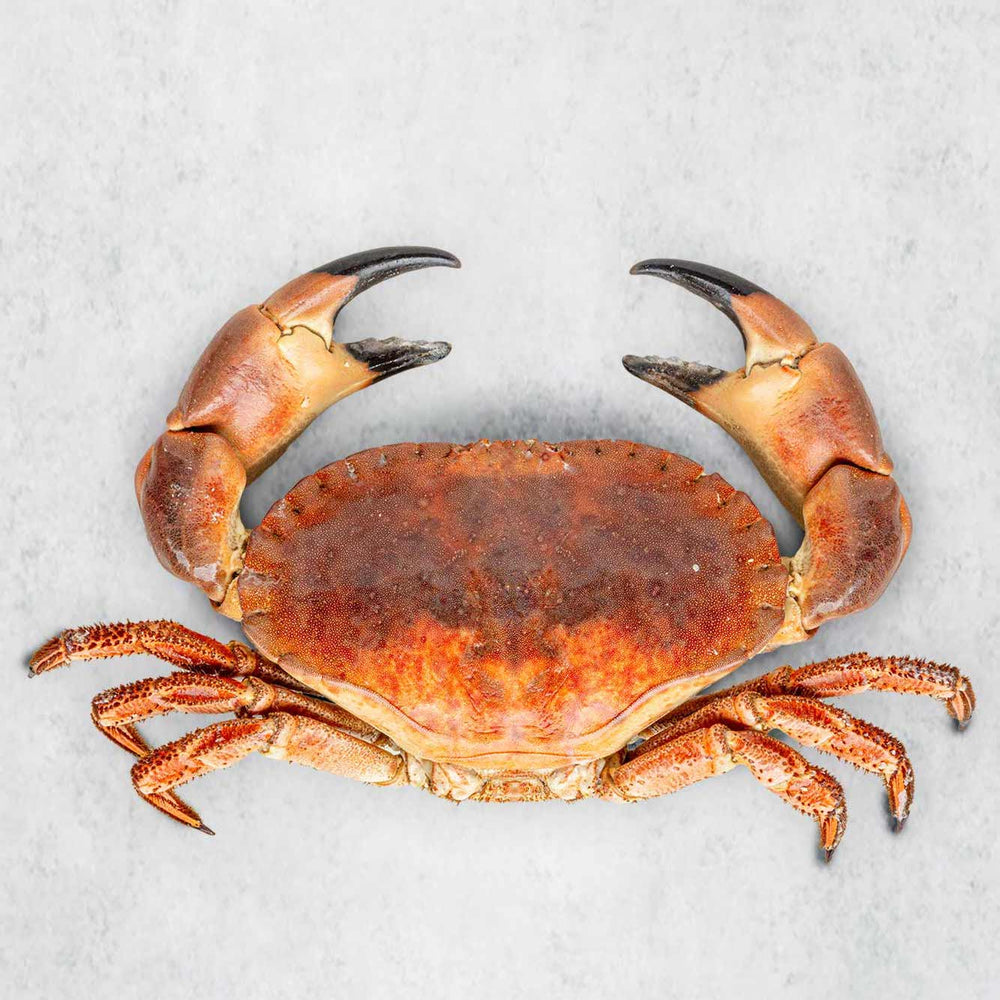World's 'most expensive fish' back in UK waters
A whopping 9-foot-long bluefin tuna has washed up dead on a Dorset beach not far from our Weymouth and Poole restaurants.
This sounds like it should be bad news. Right? Fish the length of a Fiat 500 should not be found rotting amongst the flotsam and jetsam on the Dorset Purbecks.
Remember Thor the walrus who spent New Year’s in at Royal Northumberland Yacht Club? Or when that minke whale swam up the Thames?
This stuff is NOT normal.
However, in this case the Dorset bluefin experts are saying that it might not be such a bad thing. Yes, it sucks for this tuna, but it could be a sign of a revived British bluefin fishery.
A bluefin is absolutely the Elvis Presley of the fish world, the King of Fish. Capable of growing up to 700 kg in weight, they can live for over thirty years and will migrate more than two million miles in their lifetime. Tagging programmes have shown that Brazil to Norway is a common commute for a bluefin – regularly crossing the Atlantic in as little as sixty days. Solid muscle, they’re able to out-torque a Tesla, clocking in 0-50 mph in less than three second – and that’s underwater!
Tuna is not a new sight in the UK, but one, that until now, had been consigned to the history books. In fact, in the 1930s, we had a world-renowned recreational bluefin tuna fishery in the North Sea which drew large numbers of aristocratic fishers to the ‘Tunny Club’ in places such as Scarborough and Whitby. But of course, we got greedy. They were overfished. And the fishery collapsed. By the 1950s tuna sightings in UK waters were sporadic and by the 1990s they were gone.
But now they’re showing up dead on our beaches... Conservationists at the Dorset Wildlife Trust say this is reason to believe that they’re making a comeback. In fact, tuna are regularly being seen in UK waters, with the majority spotted in Cornwall, Devon, the Isles of Scilly, and Ireland – at this time of year it's become increasingly common to spot a shole from onboard our boat the Rockfisher.
Recent species research has shown numbers of Atlantic bluefin tuna are increasing year on year. So much so, that in 2021 the species was removed from the list of Endangered species on the IUCN Red List and reclassified to a species of Least Concern. It was also removed from the MSC Good Fish Guide red rated Fish to Avoid list and rated amber for the first time.
Last month we saw the first fully licenced bluefin tuna caught on a commercial vessel in Newlyn. The landed fish weighed in at 245 kg and made a sale price of over £14 per kilo a whopping total of over £3400!
However, tuna catching is highly regulated, and rightly so. Only 10 vessels nationwide currently are granted a licence. There are stringent rules as to how and when bluefin tuna can be caught, and how many they can catch.
The recovery of bluefin tuna and its return to UK waters is no doubt a success story to be celebrated, a positive outcome for a once-depleted stock. It’s not yet clear if populations have reached sustainable levels that can withstand increases in commercial fishing pressure. Careful management and monitoring of these early-stage commercial voyages is vital if we want to see bluefin once again thriving in our seas. By learning the lessons of the past this is becoming a realistic possibility.
The tuna in our tinned seafood range are Northern Bonito Tuna caught individually by rod and line during a very short three-week season in the MSC controlled waters of Northern Spain. It’s completely delicious, yet sustainable as the fishery is managed with such careful stringency. If a similar model is replicated here in the UK for our bluefin, who knows we might just see sustainably caught Brixham tuna on our menus before too long...
This sounds like it should be bad news. Right? Fish the length of a Fiat 500 should not be found rotting amongst the flotsam and jetsam on the Dorset Purbecks.
Remember Thor the walrus who spent New Year’s in at Royal Northumberland Yacht Club? Or when that minke whale swam up the Thames?
This stuff is NOT normal.
However, in this case the Dorset bluefin experts are saying that it might not be such a bad thing. Yes, it sucks for this tuna, but it could be a sign of a revived British bluefin fishery.
A bluefin is absolutely the Elvis Presley of the fish world, the King of Fish. Capable of growing up to 700 kg in weight, they can live for over thirty years and will migrate more than two million miles in their lifetime. Tagging programmes have shown that Brazil to Norway is a common commute for a bluefin – regularly crossing the Atlantic in as little as sixty days. Solid muscle, they’re able to out-torque a Tesla, clocking in 0-50 mph in less than three second – and that’s underwater!
Tuna is not a new sight in the UK, but one, that until now, had been consigned to the history books. In fact, in the 1930s, we had a world-renowned recreational bluefin tuna fishery in the North Sea which drew large numbers of aristocratic fishers to the ‘Tunny Club’ in places such as Scarborough and Whitby. But of course, we got greedy. They were overfished. And the fishery collapsed. By the 1950s tuna sightings in UK waters were sporadic and by the 1990s they were gone.
But now they’re showing up dead on our beaches... Conservationists at the Dorset Wildlife Trust say this is reason to believe that they’re making a comeback. In fact, tuna are regularly being seen in UK waters, with the majority spotted in Cornwall, Devon, the Isles of Scilly, and Ireland – at this time of year it's become increasingly common to spot a shole from onboard our boat the Rockfisher.
Recent species research has shown numbers of Atlantic bluefin tuna are increasing year on year. So much so, that in 2021 the species was removed from the list of Endangered species on the IUCN Red List and reclassified to a species of Least Concern. It was also removed from the MSC Good Fish Guide red rated Fish to Avoid list and rated amber for the first time.
Last month we saw the first fully licenced bluefin tuna caught on a commercial vessel in Newlyn. The landed fish weighed in at 245 kg and made a sale price of over £14 per kilo a whopping total of over £3400!
However, tuna catching is highly regulated, and rightly so. Only 10 vessels nationwide currently are granted a licence. There are stringent rules as to how and when bluefin tuna can be caught, and how many they can catch.
The recovery of bluefin tuna and its return to UK waters is no doubt a success story to be celebrated, a positive outcome for a once-depleted stock. It’s not yet clear if populations have reached sustainable levels that can withstand increases in commercial fishing pressure. Careful management and monitoring of these early-stage commercial voyages is vital if we want to see bluefin once again thriving in our seas. By learning the lessons of the past this is becoming a realistic possibility.
The tuna in our tinned seafood range are Northern Bonito Tuna caught individually by rod and line during a very short three-week season in the MSC controlled waters of Northern Spain. It’s completely delicious, yet sustainable as the fishery is managed with such careful stringency. If a similar model is replicated here in the UK for our bluefin, who knows we might just see sustainably caught Brixham tuna on our menus before too long...



